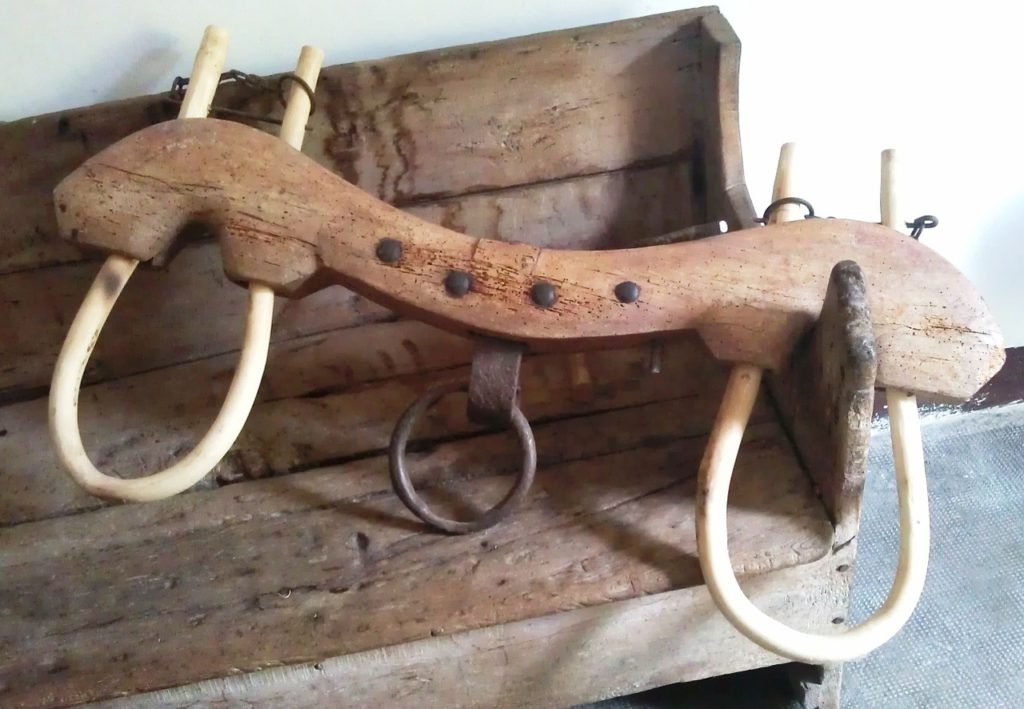Before his public ministry, Jesus worked for many years as a carpenter. In Aussie vernacular, he would be classified as a tradie, and known as a regular chippy.
The term carpenter, in Greek, is tekton. However, did you know that a tekton was more than a carpenter? He was a tradesman who worked with stone and metal, as well as wood.
Jesus had the skills to build a stonewall, construct a house or a sturdy fishing boat, toss together a bridge, or fit out a home with wooden furniture.
If he wanted to build, something from wood, there were no sawmills or timber wholesalers like Bunnings or Mitre-10 from which to gather timber supplies. He would’ve walked to an obliging hillside, chosen a suitable tree, swung at it with an axe (which he probably made himself) chopped it down and hauled the timber back to his workshop.
So when he preached about cornerstones and stumbling blocks, beams and motes, doors and gates, he knew exactly what he was talking about. Jesus had the callouses and splinters in his hands to prove it.
He would have made hundreds of yokes in his time. Excellent yokes that fit well. Yokes that were smooth and light. This way, animals could work without being annoyed by a poor fit, or aggravated by a rough finish, or encumbered by excessive weight.
Yokes were designed for two animals to use their combined strength to pull a plough or cart. With two beasts at work, more could be accomplished than what one alone could do.
Usually, an older more seasoned ox would be coupled with a younger, smaller one in order to train the inexperienced ox. The younger ox would learn where to tread and how to pull and pace himself, and more importantly, submit to the older ox’s leading.

In the Old Testament only like beasts were yoked together. Pairing animals that were not the same kind was a strict no no. Deuteronomy 22:10
Imagine a large ox paired alongside a donkey. The ox wouldn’t stand for a donkey’s hard-headedness. His brute strength would enable him to drag the donkey over rocks and rough terrain with ease. If the donkey continued to pull in the opposite direction it would only bring more suffering upon himself.
This vivid picture is carried over in the New Testament. Whether it is in a business partnership, a marriage or anything that binds people together in a close and influential relationship, Paul’s warns Christians not to be unequally yoked with unbelievers. It only spells trouble and heartache.
Everyone is yoked to something or someone.
In the time of Christ, the Pharisees were religious leaders who were esteemed in the eyes of the Jewish people.
They were yoked to God’s law—the Word of God, which was a good thing. However, they had attached additional man made laws and traditions to God’s word, which made living for God and living this life more difficult and more complicated than it was ever meant to be.
People are still making that mistake today.
They try to gain God’s approval and acceptance by their own merit and in their own strength, or by sticking to a set of man-made rules. That’s quite a heavy burden to carry.
So, Jesus had to clear things up not only for the Pharisees, but for those who were seeking after God. Christ explained the truth and invited people to simply come to him.
To trust only in him.
Come unto me, all ye that labour and are heavy laden, and I will give you rest.
Take my yoke upon you, and learn of me; for I am meek and lowly in heart: and ye shall find rest unto your souls.
For my yoke is easy, and my burden light. Matt 11:28-30
Jesus primarily preached to his own people—the house of Israel. They would’ve heard the Torah and the Prophets read aloud and preached on in the synagogue for hours every Sabbath.
Scriptures were discussed during festive gatherings and in the home at meal times. It was a culture steeped in Bible study.
A Jewish audience heavily exposed to the scripture would have easily picked up on the expression ‘rest for your souls’. Immediately, they would’ve been reminded of the prophet Jeremiah preaching that God would withhold his wrath if the people turn to him instead of the words of the false religious leaders. Jeremiah 6:13-20

The word easy means Chrestos in Greek. It’s defined as pleasurable, manageable, fit for use, good and well fitting.
The yoke that Jesus makes for us is tailor made, unlike the things we cling to in life that are ill fitting, uncomfortable and heavy to bear.
And a heavy yoke means that more effort has to be exerted to do the work. How many of us are being crushed in our spirits by weights too heavy to bear?
Jesus promises that his yoke is light.
We can couple ourselves to Jesus. We can submit to his direction and learn from him. Like the lead ox, Jesus will do all the heavy pulling. He will walk alongside us and teach us how to live and find rest for our souls.
Well, what are you waiting for?
Bibliography
Brown, K. 2020, ‘Take My Yoke Upon You: 3 Ways to Experience the Light Burden of Jesus’, Crosswalk.com. Retrieved 16 October 2020 from https://crosswalk.com
Deibert, B. 2019, ‘What is Yoke in the Bible? Meaning & importance of Jesus’ teaching’, Christianity.com. Retrieved 16 October 2020 from https://Christianity.com
Spurgeon, C.H. ‘The Two Yokes’, blueletterbible.org. Retrieved 16 October 2020 from https://www.blueletterbible.org
Tverberg, L. 2017, Reading the Bible with Rabbi Jesus, Baker Books, Michigan.
Wellman, J. 2015, ‘What does yoke mean in the Bible?’, Patheos.com. Christian Crier. Retrieved 16 October 2020 from https://www.patheos.com



Words of wisdom indeed!
Because I didn’t take heed to this instruction, I went through many unpleasant experiences…made me realize how vital God’s words are to ensuring we have a LIFE of FULLNESS!
..thought provoking! Thank you ????
Timtam,
Many thanks for all your support. Especially for all your techy know how.
God bless. 🙂